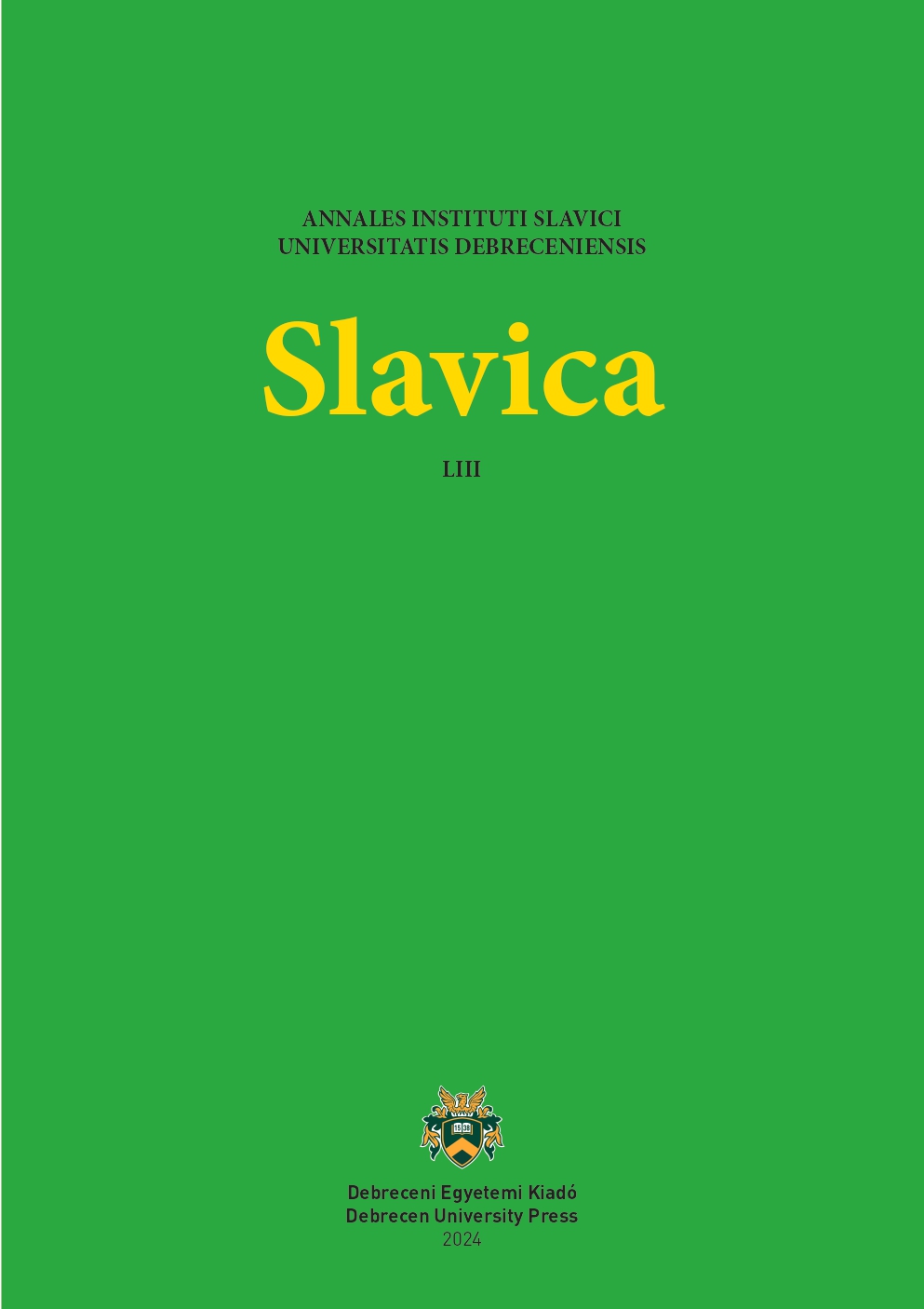Comedy against a tearful background: The interference of catharsis in L.S. Petrushevskaya’s play Colombina’s Apartment
Author
View
Keywords
License
Copyright (c) 2024 Slavica

This work is licensed under a Creative Commons Attribution-NonCommercial 4.0 International License.
This is an open access article distributed under the terms of the Creative Commons Attribution License (CC BY-NC 4.0), which permits unrestricted use, distribution, and reproduction in any medium, provided the original author and source are credited.
How To Cite
Abstract
The paperraises the question of catharsis in modern dramaturgy as a complex and ambiguous aesthetic reaction of the reader. The concept of “interference of catharsis” is introduced, meaning the combination of two of its types, laughter and tears, due to which a synergistic effect occurs that enhances both reactions. The introduced definition is tested based on the analysis of Petrushevskaya’s one-act play Colombina’s Apartment, which is recognized as an example of a philosophical farce. It is noted that in modern drama, the place of pure tearful and laughter catharsis has been taken by their reduced derivatives. Irony replaces open laughter, and feelings of bitterness or regret replace tears. The analyzed play is recognized as an example of modern metadrama. Petrushevskayauses not only the traditional characters of the commedia dell'arte (Harlequin, Pierrot, and Columbine) ata new time and in a new setting, but also the poetics of puppet theater, as well as the realities of Soviet children's theater. Laughter, which operates throughout the entire play, is removed at the end by the bitterly ironic aesthetic reaction of the readers, which is caused by compassion for the funny characters. Superimposed on one another, they create what is called the interference of catharsis.

 https://doi.org/10.31034/053.2024.10
https://doi.org/10.31034/053.2024.10